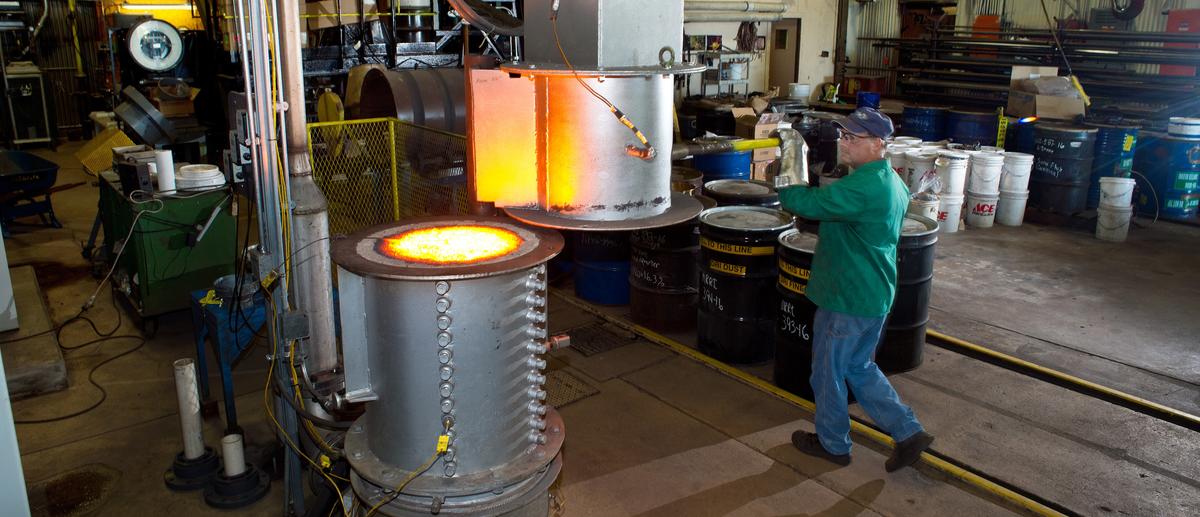Across the dirt road from a small town high school football field, the work of NRRI engineers, geologists, metallurgists and technicians reaches around the globe.
The NRRI Labs in Coleraine, Minn., currently have about 20 applied research projects underway that help companies innovate – from Fortune 500s with a 100-plus year history to growing start-ups. And there’s another 20 projects in the project development pipeline as potential opportunities.

“Companies at every level need innovation, but that takes time and money,” said Kevin Kangas, NRRI Coleraine Site Director. “Our diverse research capabilities offer dedicated, talented expertise to drive process efficiencies and better products.”
NRRI metallurgists help steel industry manufacturers get the best iron ore feedstock or understand the composition of metallic core samples. NRRI engineers work with companies to test new equipment against a variety of ores for processing. NRRI technicians perform tests to deliver the data companies need to improve their processes and products.
“It’s much more cost effective for companies of any size to engage our staff for research and development because we have the infrastructure and talent already in place,” said Kangas. “It would be very expensive for them to build out this capability. And we can engage them to fit their specific needs.”
NRRI Coleraine is also situated in the heart of Iron Country – Minnesota’s Mesabi Iron Range – where taconite pellet producers are transitioning their products to higher value iron that meets evolving steel industry needs.

“What’s really unique is NRRI’s ability to take a new idea from the lab bench to large pilot scale,” said Tim White, NRRI Director of Business Development. “We know that the scale-up process is tricky, so our work can help reduce risk in innovation.”
Industries of the Future
One example of a large industry impact is supporting the steel industry’s efforts to decarbonize by finding substitutes for fossil coal-based coke, a nearly pure carbon product necessary in steelmaking. NRRI is working with several companies to evaluate a variety of ways the steel industry can transition to renewable and climate friendly sources of carbon, such as biocarbon, and using alternative reductants, such as hydrogen.
NRRI’s unique capabilities include the ability to characterize different sources of biocarbon, make biocarbon at different scales and test how it performs metallurgically as a substitute for coke in iron ore pelletizing, sintering, and steelmaking. Once done, NRRI can also evaluate changes in energy use, environmental impacts and reclamation efforts in support of industry life cycle considerations.
“Working side by side with our partners, NRRI is uniquely positioned to create impact through advancing ideas to commercial success.” said White.
Start-up companies need a different set of expertise. Developing a new project and securing financing often requires concept validation studies. MagIron, LLC, for example, is restarting operations in the former ERP Iron Ore Plant 4 near Coleraine to produce high quality, lower carbon iron units for domestic steel production. NRRI is currently conducting flowsheet validation, along with bench and pilot-scale mineral processing test work in support of MagIron’s efforts.
UMN Partnerships
When companies or entrepreneurs come to NRRI for assistance, it’s often their first time working with a University entity. White and Kangas walk customers through complex topics like intellectual property, confidentiality and licensing up front.
“NRRI takes its role in technology demonstration and economic development seriously, striving to provide applied research at the speed of business,” said Executive Director Rolf Weberg. “It’s a unique role within the university system. Our goal is to meet the business world where they are.”
